Youth Resources
What is addiction?
Addiction is a disease of the brain. Addictive substances change how the receptors in our brain receive information, make decisions, and respond to our emotions. It can especially impact how our brains understand and transmit pleasure, making it harder to feel motivated to participate in activities like work and school, or maintain relationships with our friends and families. Treating addiction goes beyond stopping the substance and requires professional treatment in order to repair the changes in the brain.
Where to start?
There are many treatment options available for substance use disorders. Depending on what substances you are using and whether or not you need medical care to safely withdraw from that substance, as well as what other mental health challenges are co-occurring, the level of care can vary.
If you are feeling overwhelmed at any point in this process, stop and call us at 781-838-2203 or 781-873-9504
If you require immediate assistance, call the 24/7 crisis line
National Crisis Line - 988
Cambridge Health Alliance Crisis Team - 833-222-2030 for Malden, Medford, Everett, Somerville, and Cambridge
Eliot Crisis Team - 800-988-1111 for Lynn, Lynnfield, Melrose, Nahant, North Reading, Reading, Saugus, Stoneham, Swampscott, and Wakefield
If you or a loved one are in immediate danger always call 911 or go to your nearest emergency room.
What are the levels of care?
INPATIENT TREATMENT
Inpatient treatment is a 24-hour per day, locked, and often involuntary level of care that takes place in a hospital setting. Someone may require an inpatient level of care if they are not willing to receive treatment in a less restrictive setting, and if they have a co-occurring mental health disorder that causes them to be unsafe such as having active suicidal thoughts, active thoughts about hurting other people or are experiencing psychosis (hearing or seeing things that are not there or experiencing paranoia). Inpatient treatment provides intensive substance use disorder treatment, intensive mental health care treatment, and psychiatric care. A person or their family cannot self-refer to an inpatient unit and can only be admitted from a hospital emergency department by requesting a psychiatric evaluation.
Detox and residential care
Detox and residential care are medically monitored substance use disorder services, which like inpatient treatment are 24-hour per day programs that provide medical assistance for substance withdrawal and intensive substance use disorder treatment. There is also mental health treatment available at these programs including psychiatric consultation. This is a voluntary treatment, meaning that the person must be willing to participate in the program in order to be eligible, except in certain circumstances when it is court-ordered through a Section 35. A person or their family can self-refer to detox treatment, or get referrals through Malden Overcoming Addiction. Sometimes, hospitals or crisis teams are able to assist with this as well. Please note these services are highly limited at this time.
Motivating Youth Recovery - Offers detox, residential and structured outpatient
Lowell House - Offers residential, youth sober living, and structured outpatient. Lowell House does not offer detox.
SSTAR - Offers detox, structured outpatient, and outpatient services
Partial Hospitalization Programs
Partial Hospitalization Programs are day programs that provide intensive treatment for substance use disorders and mental health, including psychiatric consultation in a setting for people who are able to remain safe in the community outside of program hours. This is a voluntary treatment, meaning that the person must be willing to participate in the program in order to be eligible. A person or their family can self-refer to a Partial Program, or get referrals through an outpatient provider, crisis team or hospital emergency department.
Outpatient Treatment
Outpatient Treatment is the least restrictive setting to receive substance use disorder treatment or mental health care. Outpatient can refer to group therapy, individual therapy, family therapy, and psychiatric care that occurs in a voluntary, community-based setting or hospital. Treatment frequency can vary but most often, people meet with their providers on a weekly basis. Insurance can dictate what providers you can access and wait lists to get connected to care can vary. This is a voluntary treatment, meaning that the person must be willing to participate in the program in order to be eligible. A person or their family can self-refer to outpatient treatment, or get referrals through a crisis team or sometimes through a hospital emergency department.
CHA Behavioral Health Urgent Care
